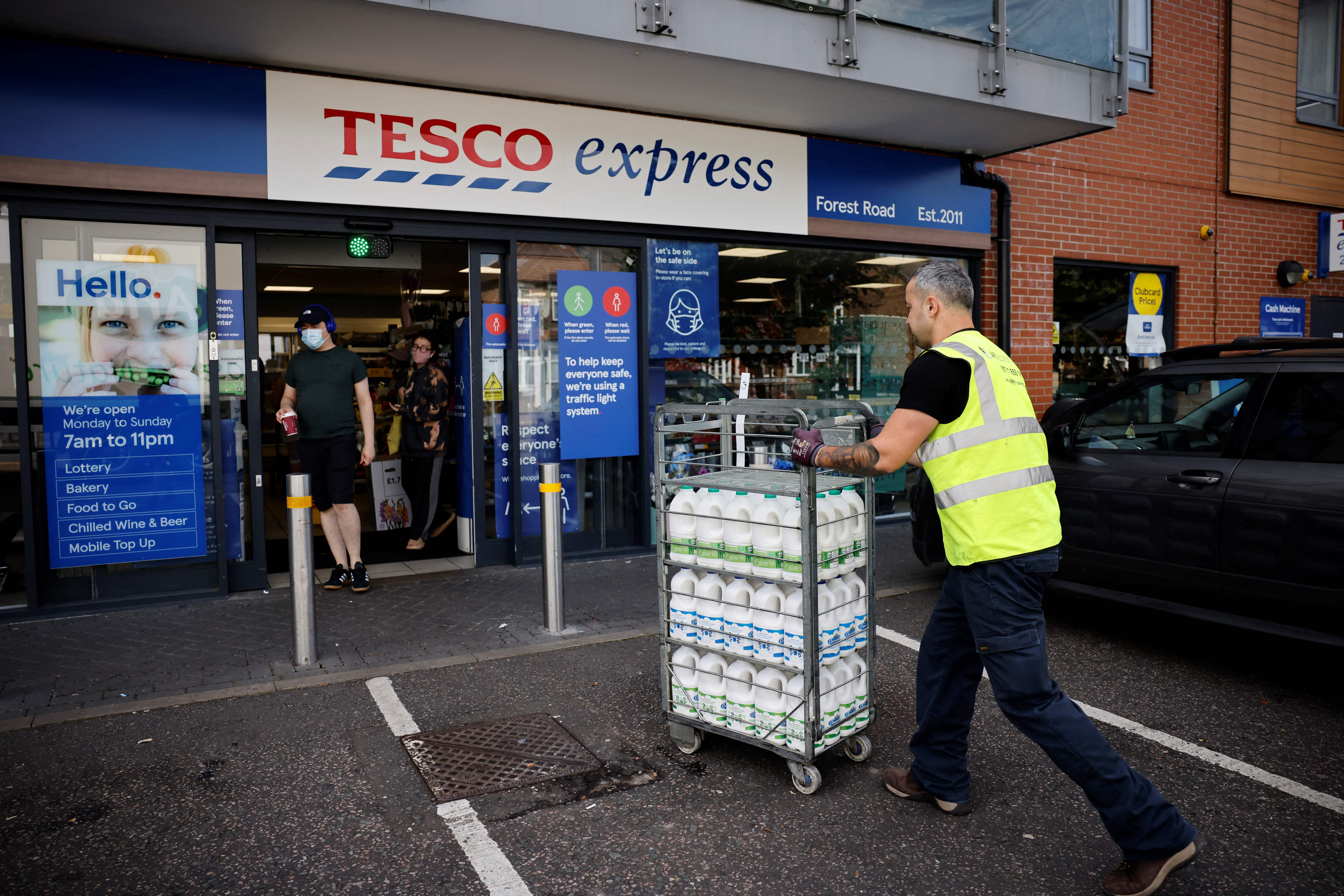Tesco the Tank Engine choo-choos its way to rich destination
As Tesco turns to trains to help it weather Britain’s government-created supply chain crisis, the supermarket’s latest results make it look like a high-speed express – and the City loves it, writes James Moore


How long, in these days of corporate sponsorship, before Thomas the Tank Engine is decked out in red, white and blue livery and renamed Tesco?
The grocer has turned to trains to help it to help weather the supply chain and lorry-driver crises created by Boris Johnson and his government. Its tank engines have worked the oracle and kept its shelves fuller than most.
One of the Conservatives’ dozier MPs, West Dorset’s Chris Loder, suggested it would be a good idea if supply chains were to break because, “it will mean the farmer down the street will be able to sell their milk in the village shop like they did decades ago”.
Yep, and before long culture secretary Nadine Dorries’s beloved Famous Five will turn up on their bikes to pack up their picnic basket with lashings of local ginger beer.
It is increasingly becoming clear that the majority of the Tory party has barely even a basic grasp of the free market economics it claims to support.
Those supply chains will not break for Tesco because the group is big and ugly enough to weather the storm, with the financial and logistical flexibility to adapt to whatever is thrown at it. It is the smaller players which will, ultimately, get hurt and the smallest most of all because they don’t have that.
The rich thus become richer and Tesco is getting very rich. Thanks to ministers’ economic incompetence, Britain is enduring tough times. Tesco, by contrast, looks like a sleek and shiny express train, hooting a greeting at Thomas as it speeds along the HS2. Well, whenever that opens – some time within the 22nd century given the way Britain handles these big infrastructure projects.
Sales increased by three per cent to £27.3bn over the six months to 28 August. The backdrop against which these results were achieved makes that figure look even better.
The comparable period covered much of the first lockdown in 2020, when the supermarkets were the only shops allowed to open, offices were closed and eating out wasn’t an option. So they did very well. This time around, the economy was reopening after the most recent lockdown. While price inflation boosted the sales number a bit, it was still limited (although the spike is coming). Tesco, thus, had to run very hard simply to stand still. Turns out that it ran far harder than anyone expected it to.
Profits inevitably headed skywards faster than one of Jeff Bezos’s vanity rockets, more than doubling to over £1bn.
The operating profit figure, which doesn’t include one-off charges or uplifts and is favoured by the City, improved by a more modest 29 per cent. While there is, clearly, still some Covid “benefit” in the figures, that is still more than respectable.
What really got investors excited is Tesco signalling that it is upping its guidance for the full year and planning to splurge £500m on buying back its own shares, a means of returning cash to investors. They tend to like buybacks because they are tax efficient in comparison with special dividends.
The company still faces challenges operating in a country run by a group of callous incompetents and led by a clown.
It will weather them. It is winning in an economy that increasingly looks set up to favour the big and the wealthy. It speaks volumes that on the same day, Bezos’s other baby, Amazon, moved on to a decimated high street with its first bricks-and-mortar store. There will be more of this sort of thing coming down the train line.
So Loder is living in a fever dream. The reality of Boris Johnson’s Britain is that the Five will get the ginger beer from a Tesco Metro kept full by a nearby warehouse, served by food trains bringing in turkeys and other products from the continent, products that Britain used to produce itself but now lacks the labour to get the job done. They’ll stop by the Amazon store to pick up a new Kindle tablet and then they’ll take their booty home to consume while watching Prime Video or Netflix.






Join our commenting forum
Join thought-provoking conversations, follow other Independent readers and see their replies
Comments